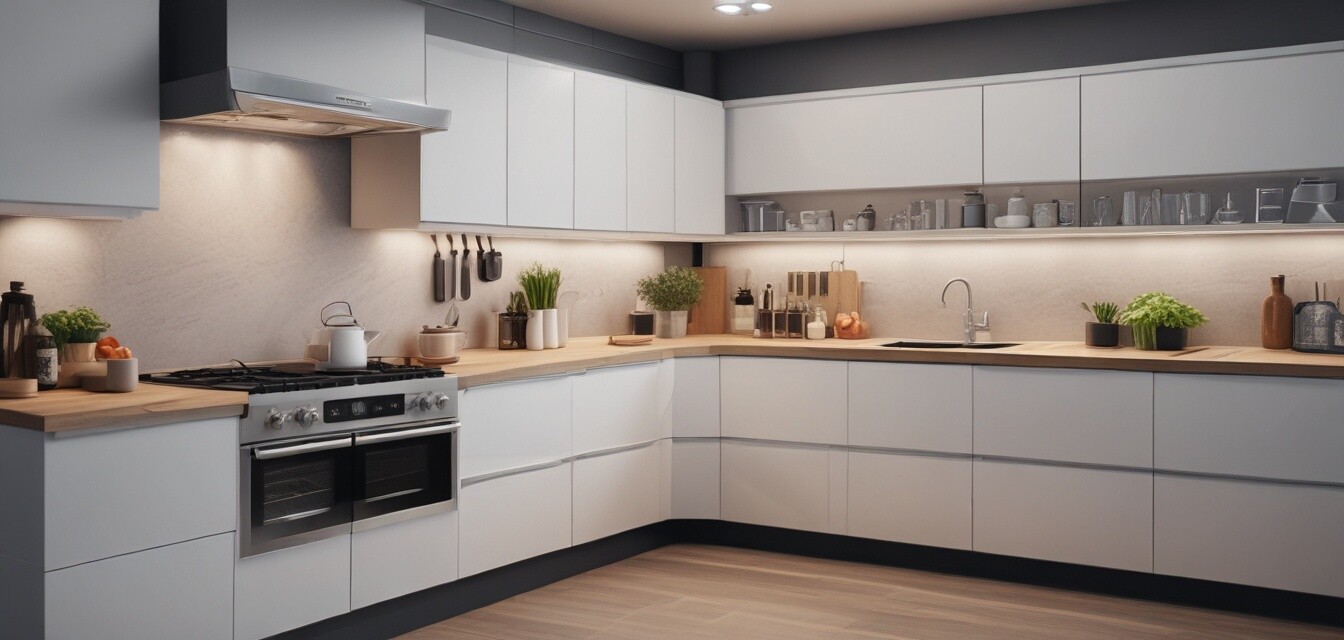
The transition to energy efficient cooking appliances
- The growing preference for eco-friendly cooking solutions is influencing consumer buying behaviors.
- Energy-efficient appliances can significantly reduce energy consumption and utility bills.
- Innovations in cooking technology are paving the way for smarter, more efficient appliances.
- Awareness of environmental impacts is driving demand for sustainable cooking options.
- The shift towards energy-efficient cooking appliances represents a broader trend in the kitchen appliance market.
The culinary world in 2025 is undergoing a significant transformation with the rise of energy-efficient cooking appliances. As consumers become more conscious about their energy consumption and its impact on the environment, this shift reflects not only a change in buying habits but also a broader trend towards sustainability in the kitchen settings.
Understanding the shift
As awareness of climate change and energy conservation grows, consumers are increasingly favoring appliances that reduce their electricity usage. The appeal of energy-efficient cooking appliances lies in their ability to save money while simultaneously reducing one's carbon footprint. This article delves into how these appliances are changing the way we cook and the decisions consumers are making.
Benefits of energy-efficient cooking appliances
| Benefit | Description |
|---|---|
| Cost savings | Energy-efficient appliances consume less electricity, resulting in lower utility bills. |
| Performance | Modern energy-efficient appliances often incorporate advanced technology for faster and more effective cooking. |
| Sustainability | Choosing energy-efficient appliances helps reduce overall energy demand and decreases environmental impact. |
| Increased home value | Homes equipped with modern, efficient appliances are often more appealing to potential buyers. |
Consumer preferences and culinary choices
With the growing number of options available in the market, consumers are more selective about their appliance purchases, seeking appliances that align with their values. This trend is influencing both product design and marketing strategies in the appliance industry.
Key factors influencing choices
- Energy ratings: Consumers often prioritize appliances with high energy ratings that demonstrate efficiency.
- Smart technology: Integration of smart features that optimize energy use during cooking is becoming a significant selling point.
- Design: Attractive and modern designs are essential in drawing consumer interest in energy-efficient options.
- Brand reputation: Trust in a brand's commitment to sustainability and energy efficiency is increasingly important.
Trends shaping the future of cooking appliances
The cooking appliance market in 2025 is shaped by several trends that mirror the shift towards sustainability:
1. Increasing adoption of smart cooking appliances
Smart appliances are now more than just a novelty; they are a valuable and efficient addition to the modern kitchen. Features like remote control, automated cooking settings, and real-time energy monitoring help users manage electricity use effectively.
2. Innovation in technology
Technological advancements have led to the creation of appliances that are not only energy-efficient but also equipped with features that enhance cooking techniques. For example, induction cooktops, which use electromagnetic energy to heat pots and pans directly, reduce wasted energy compared to conventional electric or gas stoves.
3. Sustainable materials
Manufacturers are increasingly focusing on using recyclable and environmentally friendly materials in their product designs. This is appealing to eco-conscious consumers who want to ensure their kitchen appliances contribute to sustainability efforts.
4. Government initiatives and incentives
Many governments are introducing incentives for consumers to transition to energy-efficient appliances, such as rebates and tax credits. This is driving more consumers to consider these options when upgrading their cooking equipment.
Conclusion: Embracing the energy-efficient future
The transition to energy-efficient cooking appliances is not just a trend; it represents a vital shift in consumer awareness and culinary practices. As 2025 unfolds, the need for sustainable and cost-effective appliance options will continue to dominate consumer choices. For more information on various types of energy-efficient appliances, check out our buying guides on Air Conditioners, Dishwashers, and Refrigerators.
Tips for choosing energy-efficient appliances
- Look for labels: Choose products with Energy Star certification.
- Research technology: Understand what energy-efficient features are available.
- Consider the size: Select appliances that suit your kitchen and cooking habits to avoid energy waste.
- Read reviews: Consumer feedback can provide insights into the performance of appliances over time.
Pros
- Lower energy costs leading to long-term savings.
- Improved cooking performance with modern technology.
- Positive environmental impact through reduced energy consumption.
Cons
- Higher initial investment compared to conventional appliances.
- Possible learning curve associated with using smart technology.
- Limited options for specific cooking methods may exist.